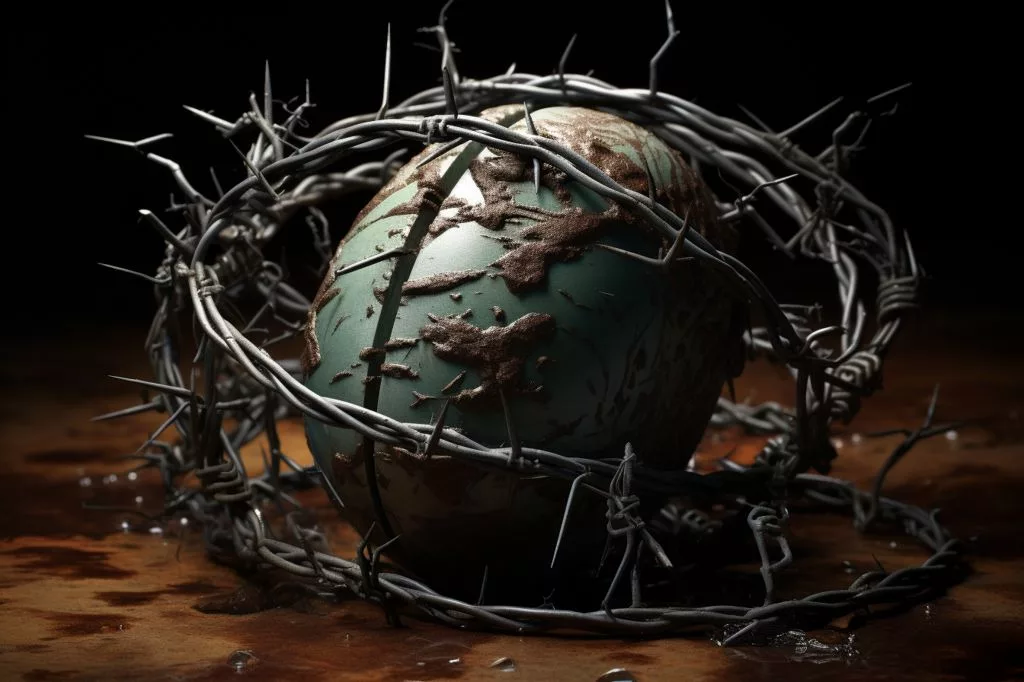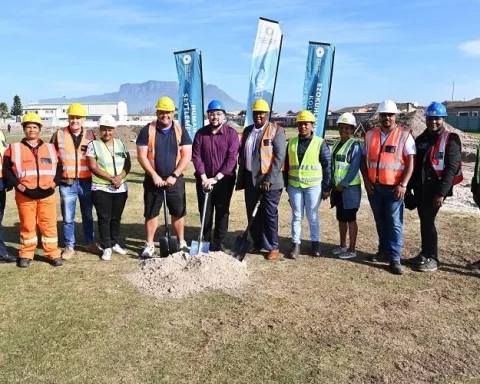Springbok rugby player Cobus Reinach and his family received death threats after South Africa’s victory over France. Rassie Erasmus, the rugby director, shared the messages on social media and responded with outstanding fortitude, stating that they would move on and focus on their objectives. The Springbok team’s resilience and refusal to surrender to victimhood is an inspiring example for anyone dealing with adversity in today’s hyperconnected world.
What were the death threats aimed at Springbok rugby player Cobus Reinach and how did Rassie Erasmus and the team react?
Springbok rugby player Cobus Reinach and his family were targeted with abominable death threats after South Africa’s victory over France. Rassie Erasmus revealed the horrifying messages on social media and responded with outstanding fortitude, stating that they would move on and focus on their objectives. The Springbok team’s refusal to surrender to victimhood is a testament to their strong character and provides an inspiring example for anyone dealing with adversity.
Unimaginable Threats in the Sporting World
In an age where online harassment and loathsome speech have become regrettably frequent, it is especially appalling when our sports idols and their families are targeted with unthinkable threats. This is the grim reality faced by Springbok rugby player, Cobus Reinach, and his young family following South Africa’s triumph over France in a recent quarterfinal match.
The reaction from France to the loss has been far from magnanimous. Accusations of cheating and duplicity have been rampant, but nothing would ready Reinach and his teammates for the abominable death threats they would encounter. Rassie Erasmus, the respected rugby director of South Africa, turned to social media to reveal the horrifying messages aimed at Reinach and his child, unveiling the repulsive side of fanatical behavior.
A message addressed to Reinach stated, “Dirty son of a bitch, I hope that when you return to Montpellier you get murdered by French people on the ground gang of thieves easy to win a title by cheating.” Another message, accompanied by a photo of Reinach’s son, bluntly declared, “Go die.” These appalling messages underscore the extent to which certain individuals will go in an effort to injure and belittle others.
Erasmus’s Resilience and Broader Implications
Erasmus’s reaction to these detestable threats was an outstanding display of fortitude in the midst of adversity. Sharing the screenshots on his Twitter account, he wrote, “This is obviously not true. Unfortunately, these threats were made to Cobus Reinach!! It’s not nice and upsets a mom and dad to see things like that said about their boy! But we are not gonna whine, we will just move on!!! Hulle weet nie wat ons weet nie.” This potent statement shows that, despite the malice they have faced, the Springboks are resolved to surmount it and concentrate on their objectives.
Reinach’s ordeal brings up crucial questions about sportsmanship and ethics in today’s hyperconnected world. While rivalries and ardent support for one’s team are essential aspects of any sport, there is a fine line between healthy competition and the sort of malevolence exhibited by those who send death threats to players and their families. This reprehensible behavior highlights the necessity for a more extensive discussion about the damaging effects of online harassment on athletes and their loved ones. Additionally, it serves as a sobering reminder of the responsibility sports fans must assume in ensuring their passion for the game does not deteriorate into brutality.
The Springbok team’s reaction to this appalling situation epitomizes grace and resilience. The players, united in their defiance against their assailants, have elected to move on rather than dwell on the hatred aimed towards them. This refusal to surrender to victimhood is a testament to their strong character and provides an inspiring example for anyone dealing with adversity.
Rising Above and Embracing True Sportsmanship
In light of these events, the Springbok team’s unwavering commitment to focusing on their goals is nothing short of praiseworthy. Amidst the torrent of hate and venom, Rassie Erasmus and his players persist in conducting themselves with dignity and professionalism, staying true to the essence of rugby.
It is crucial to recognize that the actions of a few despicable individuals should not besmirch the entire French rugby community. Like their South African counterparts, the majority of French fans are passionate about the game and support their team without resorting to such abhorrent tactics. By acknowledging this, we can appreciate the genuine beauty of sportsmanship and unity that surpasses national boundaries.
Ultimately, the Springboks’ refusal to be undermined by the poisonous words and threats aimed at them is a testament to true sportsmanship and a reflection of their indomitable spirit. As they continue to compete and chase their dreams, may their resilience serve as a shining exemplar for all of us to rise above hatred and concentrate on what genuinely matters. In the words of Rassie Erasmus: “Hulle weet nie wat ons weet nie,” meaning, “They don’t know what we know.” And what the Springboks know is that they are stronger together, united against adversity, and prepared to confront any challenge that comes their way.
1. What kind of threats did Cobus Reinach and his family receive after South Africa’s victory over France?
Cobus Reinach and his family received death threats after South Africa’s victory over France.
2. How did Rassie Erasmus and the team react to the death threats?
Rassie Erasmus shared the messages on social media and responded with outstanding fortitude, stating that they would move on and focus on their objectives.
3. What is the significance of the Springbok team’s resilience and refusal to surrender to victimhood?
Their resilience and refusal to surrender to victimhood is an inspiring example for anyone dealing with adversity in today’s hyperconnected world.
4. Why is it especially appalling when sports idols and their families are targeted with threats?
It is especially appalling when sports idols and their families are targeted with threats because they are public figures and their personal lives can be easily invaded by fans and critics.
5. What were the messages that were sent to Cobus Reinach and his family?
One message addressed to Reinach stated, “Dirty son of a bitch, I hope that when you return to Montpellier you get murdered by French people on the ground gang of thieves easy to win a title by cheating.” Another message, accompanied by a photo of Reinach’s son, bluntly declared, “Go die.”
6. What was Rassie Erasmus’s reaction to the death threats?
Rassie Erasmus reacted with outstanding fortitude, sharing the screenshots on his Twitter account and stating that they would move on and focus on their objectives.
7. What broader implications does this event have for sportsmanship and ethics in today’s hyperconnected world?
This event highlights the necessity for a more extensive discussion about the damaging effects of online harassment on athletes and their loved ones, and serves as a reminder of the responsibility sports fans must assume in ensuring their passion for the game does not deteriorate into brutality.
8. What can we learn from the Springbok team’s reaction to the death threats?
The Springbok team’s reaction to this appalling situation epitomizes grace and resilience, serving as an inspiring example for anyone dealing with adversity. Their refusal to surrender to victimhood is a testament to their strong character and provides a model for true sportsmanship.












